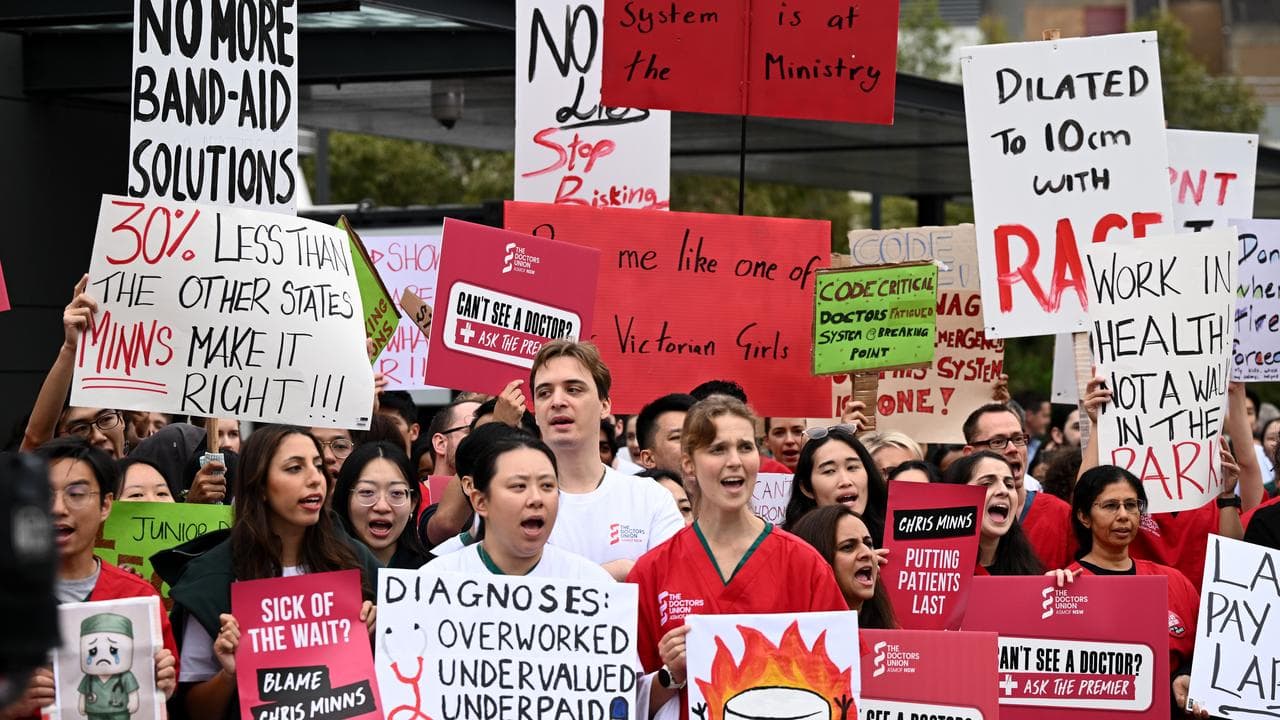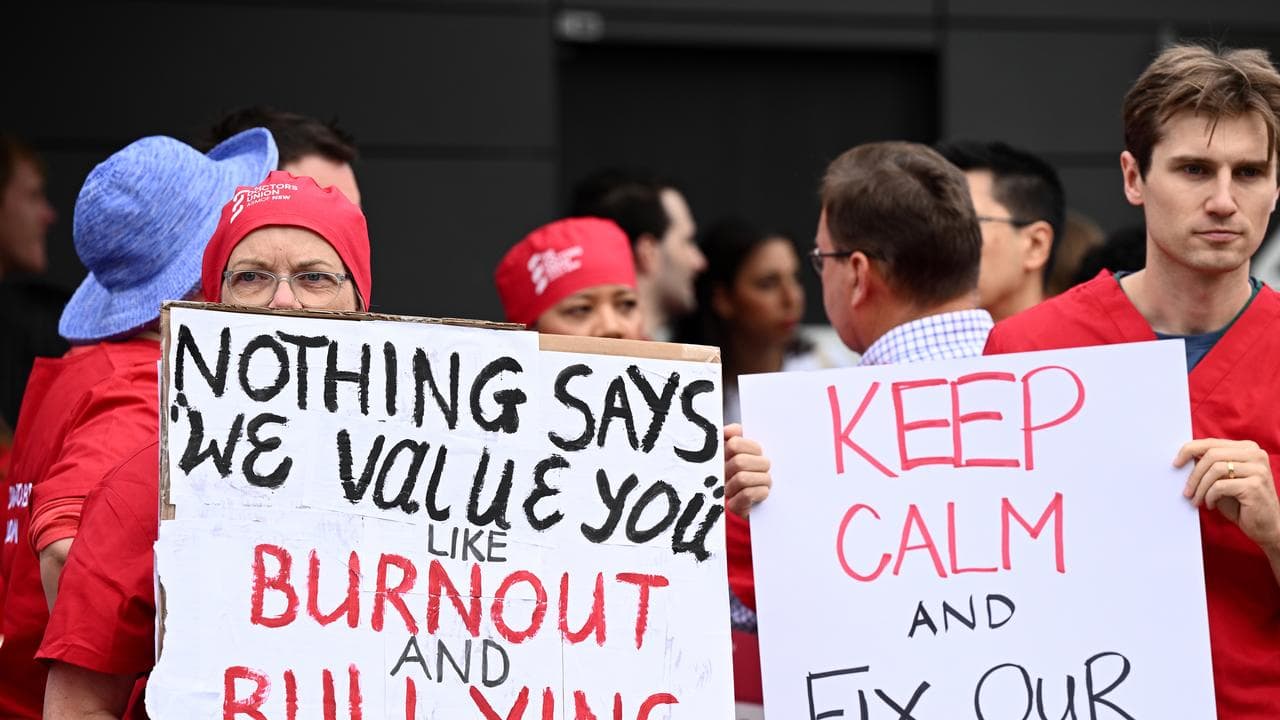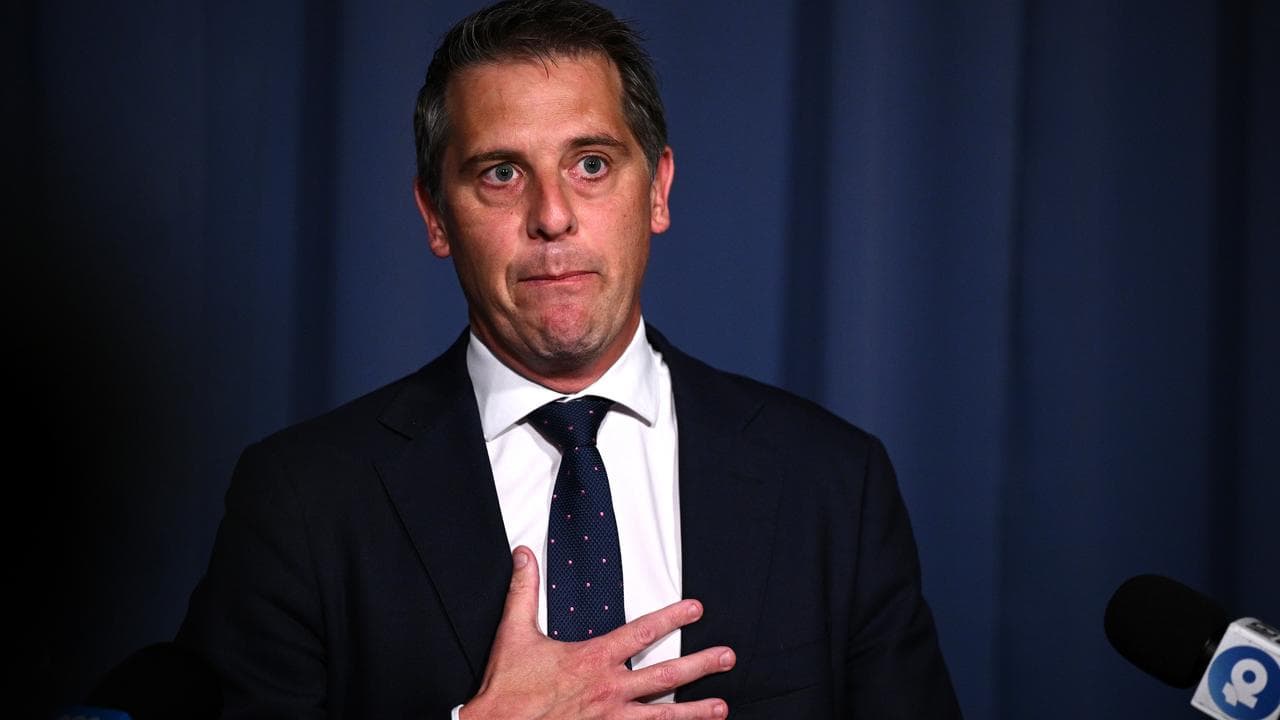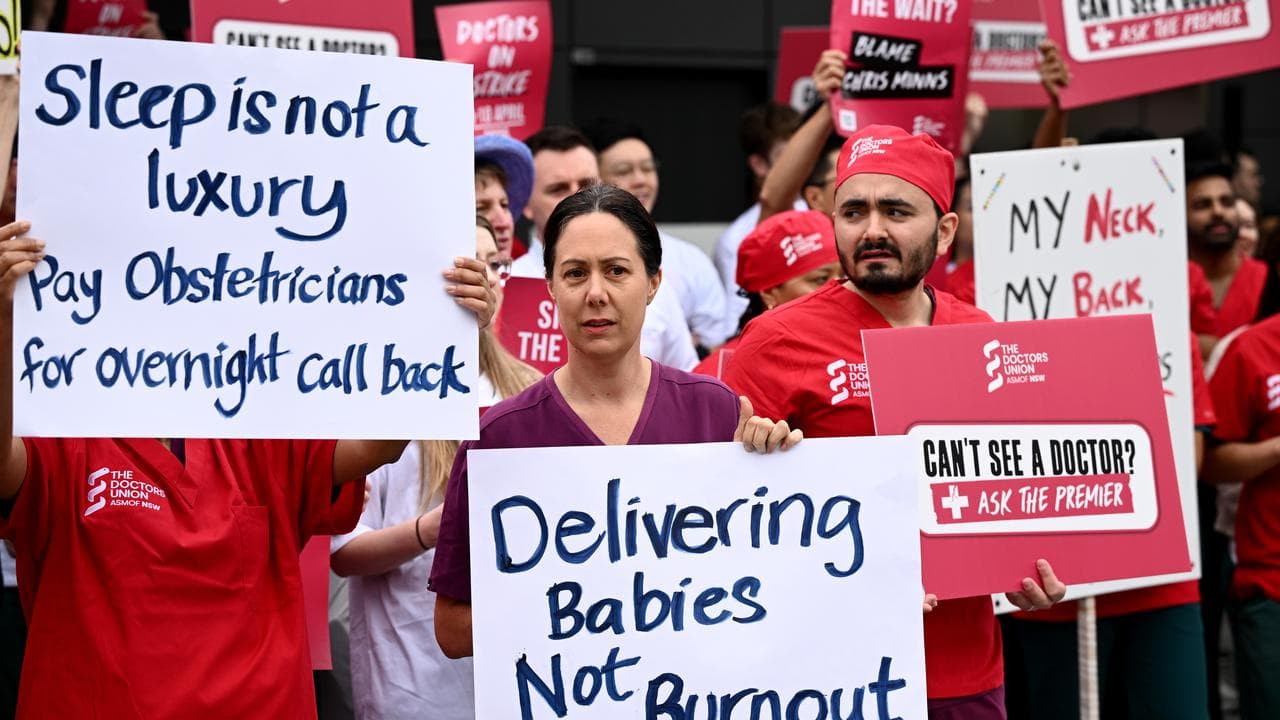
Thousands of surgeries, appointments and cancer treatments have been cancelled as hospital doctors walk off the job over staggering workloads and low pay.
Doctors from dozens of NSW hospitals went on strike for the first time in 27 years on Tuesday, demanding a 30 per cent salary increase and guaranteed breaks.
Health Minister Ryan Park tried to have the rare strike called off on Monday night by offering a week-long intensive negotiation focused on boosting junior doctors' pay.
But that was knocked back by their union when the government wouldn't put a specific figure on a wage increase.
The union says NSW juniors are the worst paid in the country, earning up to 40 per cent less than their interstate counterparts.
One of the 3500 doctors from more than 30 hospitals who walked off the job on Tuesday said conditions were putting patients at risk.
Henry Crayton said he worked 135 hours in the past fortnight with just one day off, covering 150 patients per shift.
"That is a completely normal fortnight for me, and I'm over it," he told AAP.
"I'd be lying if I said I myself was not actively looking (to move interstate), because if the state government doesn't value me and doesn't help me be the best doctor I can, why would I stay?"

Doctors also want a guaranteed 10-hour break between shifts, to stem the exodus of colleagues to other states.
“They're no longer able to tolerate conditions that essentially put our patients and even ourselves at risk through a lack of staffing and poor working conditions," Westmead senior medical officer Mark Priestley said while picketing his hospital.
"We're here because we want to be there for our patients."
Mr Park agrees junior doctors need a significant pay bump but says the 30 per cent request isn't affordable.
“We understand junior doctors need to be paid more and ... we will remain at the table and work through this as quickly and as effectively as we can," he said.

His negotiation offer was the first sign the government was prepared to improve its proposal of 10.5 per cent over three years for all doctors.
“We want to pay them more (but) we can't do everything they want in a single year, given we've had wage suppression in this state for over a decade," Mr Park said.
The previous coalition government capped public sector wage rises at 2.5 per cent per year from 2011 to 2022, adding exceptions for productivity gains in later years.
Opposition Leader Mark Speakman, who has long backed the wages cap, agreed the junior doctors deserved a "significant" pay rise.
“The job of public hospitals is to keep patients well and safe,” he said.
"We've got to make sure that our professionals have appropriate support to do that."

Fears the strike would plunge an already stretched health system into chaos had not come to pass by Tuesday afternoon.
Emergency department wait times were still better than national benchmarks at 1pm, health officials said.
But they tipped that would decline throughout the three-day strike particularly as emergency beds closed.
Hospitals are being staffed at public holiday levels throughout the strike, with only procedures deemed "non-urgent" postponed.
That included at least 370 surgeries, 3000 outpatient appointments and 480 chemotherapy treatments for cancer patients, NSW Health said.
More than 100,000 people are on the elective surgery waiting list in NSW, nearing the record-high reached due to COVID.
JUNIOR DOCTOR PAY ACROSS AUSTRALIA
(includes superannuation, leave entitlements, allowances)
First-year doctor
* Northern Territory $123,979
* Victoria $122,353
* Western Australia $120,860
* Queensland $119,780
* Tasmania $116,348
* ACT $115,464
* South Australia $113,226
* NSW $97,114
Third-year registrar (doctor in specialist training)
* Victoria $200,239
* Tasmania $198,858
* Northern Territory $198,721
* Queensland $190,644
* ACT $190,387
* Western Australia $186,130
* South Australia $179,967
* NSW $168,099
ACT and WA rates based on awards under negotiation
(Source: Australian Salaried Medical Officers Federation)




